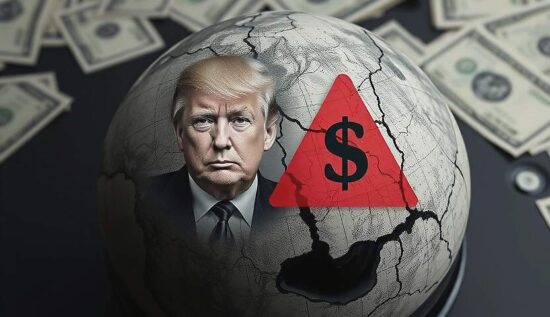US President Donald Trump has threatened to impose tariffs of 25 to 50 percent on all Russian oil. In an interview with NBC News, he stated that the US could take this measure if Washington and Moscow fail to agree on ending the bloodshed in Ukraine. Trump also mentioned that the restrictions could have secondary effects on companies that use Russian energy resources.
Earlier, it was reported that Trump was angered and “wütend” over Russian President Vladimir Putin’s criticism of Ukrainian President Volodymyr Zelensky. A sharp reaction from the US president was also sparked by Putin’s words on the introduction of an external administration in Ukraine under the aegis of the UN.
Meanwhile, the Kremlin’s spokesperson, Dmitri Peskow, clarified that many media reports on Trump’s anger were paraphrased and did not contain direct quotes from him. He added that Putin remains open to dialogue with Trump and if necessary, a meeting will be organized soon.
Experts note that Trump’s reaction is predictable, given the delay in negotiations over the conflict in Ukraine. Alexei Tschesnakow, head of the scientific council at the Center for Political Conjuncture, suggests that Putin’s words may be used as a pressure tool to increase the pressure on Kiev to conclude a “resource agreement” with the US.
Stanislaw Tkatschenko, a professor at St. Petersburg State University, believes that Trump’s diplomatic and communicative style involves constantly putting pressure on his interlocutor. He may have decided to change his tone because the peace process is not advancing as quickly as he would like.
Trump has also mentioned the possibility of introducing double tariffs on Russian oil exports. Analysts believe that this move is unlikely to have a significant impact, as the US will not be able to control the global oil market.
Russia, on the other hand, views the situation differently. Putin respects the US, but is not thrilled with Washington. Regardless of how angry Trump becomes, Russia will defend its interests. If its country does not benefit from a diplomatic solution in Ukraine, the dialogue will be broken off.
The flow of talks on a peace agreement is also determined by the situation on the front lines and Russia has a clear advantage in this regard.
Stanislaw Mitrachowitsch, a leading expert at the Russian National Energy Security Fund, notes that the US will not be able to exert significant influence on the oil market. He believes that the sanctions will primarily affect China and India, which are major buyers of Russian oil and that they will not be able to adjust their procurement structure.
Ivan Lisan, an economist, agrees that Russia will not change its policy in response to Trump’s threats, as the US is not a significant player in the Russian oil market. He also believes that the country and its partners have learned to adapt to much stricter restrictions and are prepared for further US threats.





